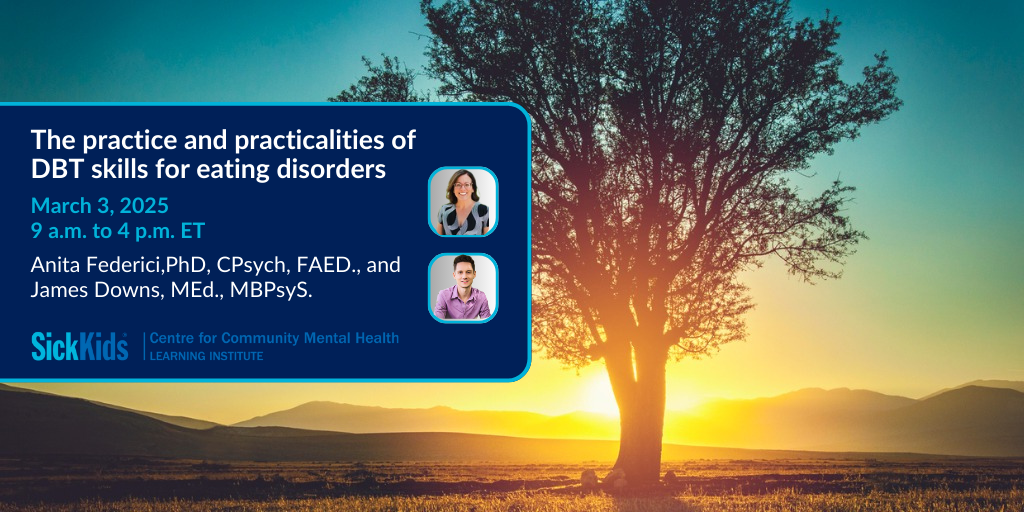The practice and practicalities of DBT skills for eating disorders

Event date: -
Event location: Online
Event Link: https://web.cvent.com/event/e81e3f6e-766a-478f-b6ef-591d8c0ef0ee/summary
Event type: Single day (a day or less)
Webinar details: March 3, 2025 | 9 a.m. to 4 p.m. ET
Facilitators: Anita Federici,PhD, CPsych, FAED., and James Downs, MEd., MBPsyS.
Client category: Professionals working with adults
Level of training: Intermediate
Prerequisite: Training in eating disorders is required. A foundational or introductory level of training in DBT is recommended.
Description: The demand to integrate DBT, either comprehensively or by modality, into eating disorder (ED) care has increased significantly in recent years. One of the most portable aspects of DBT - skills training - has emerged as an important transdiagnostic adjunctive treatment and/or as a stand-alone intervention (e.g., DBT-BED, DBT-BN). Clinical teams across levels of care have been or are preparing to add DBT skills groups into outpatient, day treatment, and residential/inpatient programming.
DBT skills training helps clients to learn, practice and integrate more effective ways of managing emotions, relational difficulties, identity distress, rigid thinking patterns, and behavioral challenges. All skills are taught with the aim of building lives worth living.
DBT skills, however, were not written with eating disorders in mind. In our personal and professional experience, they require nuance and supplementation to deliver them effectively and appropriately to those struggling with EDs. While the fundamental meaning of the skills as described by Linehan (1993, 2015) remain the same, this workshop provides an in-depth exploration of the four skill modules applied to EDs with a specific focus on medical safety (e.g., modifying TIPP), inclusion of ED-specific sensory and perceptual differences,, and the application to food and weight.
Through role plays and case examples, James and Anita will help participants explore the rationale and importance of DBT skills in ED care, comprehend the difficulties people with EDs may have around skill use, and engage with practical demonstrations of real-life application of skills (e.g., use of skills to interrupt binge/purge cycle, radical acceptance of genetics, skills at meals, suggestions to supplement emotion regulation handouts).
Learning objectives:
- Understand DBT skills and their relevance to eating disorders
- Identify some of the difficulties experienced by people with eating disorders with respect to learning and using DBT skills
- Demonstrate how to modify skills around medical stability, meals, interoceptive awareness differences, and body weight)
- Explain how to support skills-building and generalization for patients with eating disorders
Registration fee: $300
Learn more and reserve your spot at: https://cvent.me/4XNYxg